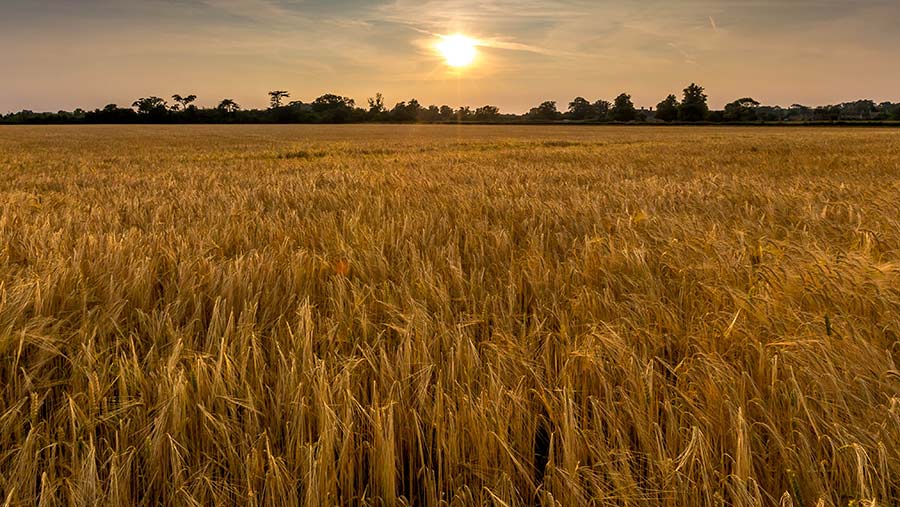Opinion: Moves to ‘gentler’ form of farming surely welcome?
 © Tim Scrivener
© Tim Scrivener The human eye loves to rest upon wide expanses of pure colour: the moors in the purple heyday of the heather, miles of green downland, and the sea when it lies calm and blue and boundless… But to some, none of these, lovely though they all are, can give the same satisfaction of spirit as acres upon acres of golden corn.
There is both beauty and bread, and the seeds of bread for future generations.
I have just finished reading Lark Rise to Candleford, Flora Thompson’s memoir of a rural childhood in the 1880s.
When I saw the passage above it struck me that nowadays an expanse of ripe wheat may elicit a more ambivalent response.
In Suffolk, the fields seem suddenly to have turned yellow and the combines are hard at work.
While acres of barley rippling like blond fur is a marvellous sight, is the crop so apparently perfect and abundant only because it has had lots of artificial fertiliser and the full panoply of “-icides” thrown at it?
And does this matter?
See also: Public access to open spaces should not be a right, says Joy Bowes
When I walk the footpaths through fields near my home, I try to connect what I see with what I gather from the Arable pages of Farmers Weekly – although to be honest, for me it is sometimes like a foreign language, when you don’t understand crucial bits of vocabulary.
What I do know is that I don’t know much.
I admire the skill and technical expertise that goes into arable farming, starting with what to plant where and when; then tackling the plethora of pests and diseases that may beset the crops; and finally, judging the right time to start harvesting.
Add to this the complete unpredictability of the weather and I’m mildly astonished that anyone manages to grow any food at all.
As a result, I am irritated by casual denigration in the media of “industrial” agriculture, by people who probably know even less than I do, and with scant regard for the fact that we all need to eat.
Recently there has been a flurry of books dealing in some way with farming, the environment and rewilding.
Publishers clearly see profit in jumping on this particular bandwagon (the suspension of which must be creaking), but judging from the reviews and magazine articles I have seen, the tone of much of this writing seems regrettably adversarial and tends to paint commercial farmers as irredeemably destructive.
However, I am torn. It feels ungrateful of me to be critical when I am happy to consume British produce, however it is grown, but I do worry about damage to soil fertility and declining bird and insect populations.
I know there are regulations controlling their use, and assume most farmers won’t chuck expensive treatments around willy-nilly.
And of course it’s ridiculous to fret about “chemicals” in general when we all use them every day – just read the label on a bottle of shampoo. So am I being naively impractical in welcoming what appear to be gentler ways of farming?
Lark Rise was no bucolic paradise, and with a UK population now over double what it was then, we can’t go back to the farming methods of the 1880s.
But I am hopeful that innovations such as no-till, cover crops and so on will reduce our reliance on artificial interventions and secure British food production into the next century.

